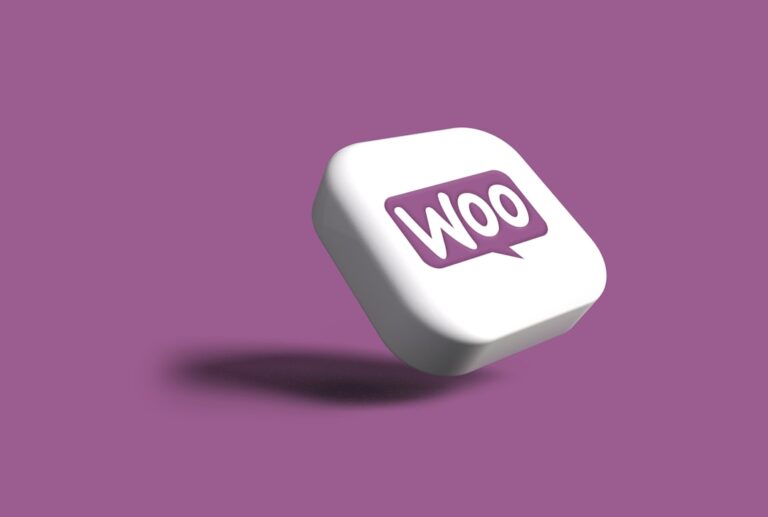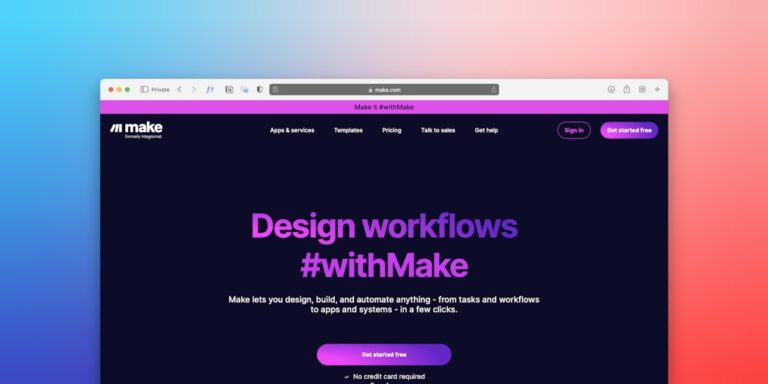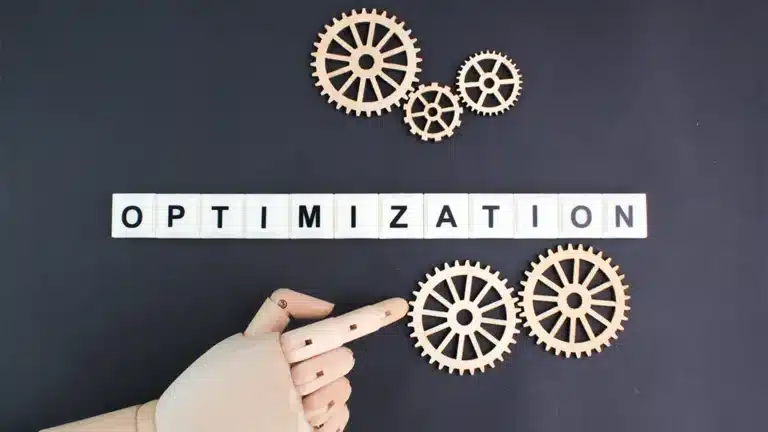Why Custom Website Design Matters: How to Create a Site That Stands Out
Introduction: The Importance of a Custom Website Design
In a digital landscape where first impressions are everything, a custom website design can set your business apart. Unlike template-based designs, which often result in cookie-cutter layouts and limited flexibility, custom website design allows you to create a unique, memorable online presence that aligns perfectly with your brand. A custom approach to website design means you’re not limited to pre-made structures or styles. Instead, you’re building a site from the ground up that fully reflects your business’s values, goals, and customer needs.
Why does this matter? Today’s customers expect more from websites; they want intuitive navigation, visually engaging pages, and an experience that feels tailored to their needs. A custom design not only helps you stand out in a sea of generic sites but also fosters brand loyalty by creating a cohesive and professional appearance. Furthermore, custom website design can impact your search engine visibility. Search engines favor unique, user-friendly sites that are optimized for both mobile and desktop users. Choosing a custom design, then, is about investing in a digital foundation that drives long-term growth and aligns with your specific business objectives.
What Is Custom Website Design?
Custom website design is the process of creating a unique website tailored specifically to your brand, rather than using pre-made templates. With a custom site, you have complete control over every detail, from layout and color scheme to the functionality and features that meet your unique business requirements. Custom design starts with a blank canvas, allowing designers and developers to work together to create a website that matches your brand identity, speaks to your audience, and achieves your specific goals.
Unlike template-based designs, which often impose structural and visual limitations, a custom website is designed with scalability and flexibility in mind. Whether you need specific integrations, personalized navigation, or unique design elements, custom design makes it possible. Additionally, custom websites are often built to accommodate future growth, so you can expand your site as your business evolves. This level of flexibility is especially valuable for businesses looking to establish a strong, lasting online presence that can grow with them. With custom website design, you’re not just building a website; you’re creating a dynamic, long-term asset that can adapt to changing trends, audience needs, and business goals.
Key Benefits of Choosing Custom Website Design
Choosing custom website design offers a range of advantages that can help your business not only stand out but thrive online. Here are some of the most significant benefits:
- Tailored Branding: Custom design allows you to incorporate every element of your brand identity seamlessly. From colors and fonts to imagery and layout, every detail is aligned with your brand values, making a cohesive and memorable experience for visitors. This helps reinforce your brand, giving customers a clear, professional impression that builds trust.
- Enhanced User Experience (UX): With a custom website, you’re not confined to a one-size-fits-all layout. Instead, you can design for a specific user journey, making navigation intuitive and engaging. Custom designs also allow for the integration of unique features that improve functionality, keeping visitors on your site longer and encouraging them to explore more pages.
- Better SEO Opportunities: Custom websites are easier to optimize for search engines because they’re built with SEO in mind from the beginning. Unlike some templates that might be difficult to optimize, custom websites can be tailored for site speed, mobile responsiveness, clean code, and effective keyword placement, which all contribute to improved search engine rankings.
- Scalability and Flexibility: As your business grows, your website needs to keep up. Custom websites are built to adapt to future needs, allowing you to add new features, pages, and integrations as necessary. This level of flexibility is crucial for businesses that anticipate growth or plan to expand their offerings.
- Higher Conversions: By offering a unique, user-focused experience, custom websites are more likely to convert visitors into customers. From optimized landing pages to personalized calls to action, custom websites can be designed to guide users toward specific goals, such as making a purchase, signing up for a newsletter, or contacting your team.
In a world where your website is often the first point of contact with customers, the benefits of a custom design go beyond aesthetics. It’s a strategic investment in your brand’s digital presence, helping you stand out from competitors, improve user satisfaction, and support your business’s growth.
How Custom Design Elevates Brand Identity
A strong brand identity is essential for any business, and a custom website design is one of the best ways to reflect that identity online. When you opt for a custom design, every aspect of your site – from colors and fonts to layout and interactive elements – can be crafted to match your brand’s unique voice and style. Unlike template designs, which may look generic or fail to capture the nuances of your brand, a custom design allows for total control over every visual and functional detail.
For instance, if your brand is bold and modern, your website can use striking colors, sharp lines, and innovative features that speak to your target audience. If your brand is elegant and understated, the design can include softer color palettes, sophisticated typography, and clean layouts. A custom website can also integrate brand-specific elements like logos, icons, and images that help distinguish your business from competitors. This level of personalization creates a cohesive and immersive experience for visitors, helping them recognize and remember your brand every time they visit.
In an increasingly crowded digital landscape, brand consistency is key to establishing trust and fostering customer loyalty. A custom website not only makes a lasting impression but also reinforces your brand’s values, message, and tone at every touchpoint.
Understanding the Custom Website Design Process
The custom website design process typically involves several stages, each aimed at ensuring that the final product aligns with your vision and goals. Here’s a closer look at what you can expect:
- Discovery and Strategy: This initial phase is all about understanding your business, brand, audience, and goals. Designers and strategists will collaborate with you to define key objectives, research competitors, and identify essential design elements that will drive the project.
- Design and Concept Development: Once the strategy is clear, the design team will create visual concepts based on the information gathered. These concepts include layouts, color schemes, fonts, and sample page designs. At this stage, you’ll have the opportunity to provide feedback and make adjustments.
- Development and Coding: After finalizing the design, developers step in to build the website. This phase involves coding and implementing the design elements, setting up functionality, and ensuring that the site works smoothly across devices and browsers. Features like navigation, forms, and interactive elements are added here.
- Testing and Quality Assurance: Before the website goes live, it’s thoroughly tested for usability, performance, and compatibility. This includes checking for any bugs, testing mobile responsiveness, and optimizing load times. Quality assurance ensures that the website is ready for a seamless user experience.
- Launch and Post-Launch Support: Once everything is finalized and approved, the website is launched. Many design companies offer post-launch support to address any issues, make updates, and keep the website secure and up-to-date. This ensures your site remains functional and effective as your business grows.
A well-structured design process keeps the project on track and ensures that the final product is aligned with your brand and business objectives. Knowing what to expect at each stage also allows you to provide timely feedback, making the collaboration more efficient and productive.
Features to Consider in a Custom Website Design
When creating a custom website, there are several key features to consider that can greatly enhance both user experience and performance. These features can make a significant difference in how visitors interact with your site and how well it supports your business goals.
- Responsive Design: With more users browsing on mobile devices, responsive design is a must. A responsive site adjusts automatically to different screen sizes, ensuring a seamless experience whether visitors are on a smartphone, tablet, or desktop.
- Optimized Site Speed: Site speed plays a critical role in both user satisfaction and SEO. Slow-loading websites can frustrate visitors and increase bounce rates. Custom sites allow for speed optimizations like image compression, efficient coding, and server-side improvements, all of which contribute to faster load times.
- Intuitive Navigation and User Flow: Navigation should be simple and intuitive, guiding users to the information or actions they’re looking for without confusion. Custom design allows for tailored navigation that suits your audience’s preferences and helps drive conversions.
- Accessibility Compliance: An accessible website ensures that people with disabilities can navigate and interact with your content. Custom design offers the flexibility to incorporate accessibility features like keyboard navigation, screen reader compatibility, and alternative text for images, making your site inclusive for all users.
- Engaging Visual and Interactive Elements: Custom websites can include unique visual and interactive elements like animations, video backgrounds, and custom icons. These elements capture visitors’ attention and enhance the user experience, encouraging visitors to stay on your site longer.
Each of these features contributes to a website that not only looks good but also performs well. When you prioritize responsive design, speed optimization, accessibility, and usability, you’re building a site that’s prepared to meet the needs of a modern audience. A custom website designed with these features in mind ultimately creates a better experience for users and a stronger foundation for your business.
Why Custom Design Is Ideal for SEO
SEO (Search Engine Optimization) is essential for online visibility, and a custom website design provides a strong foundation for SEO success. Unlike template-based designs, custom websites can be optimized for search engines from the ground up, allowing for greater control over key SEO elements. A good design company will work closely with you to ensure your custom site is built with SEO best practices in mind.
Key SEO-friendly features of custom design include:
- Optimized Site Structure: Custom websites allow for a clear, logical structure that makes it easy for search engines to crawl and index your pages. With a structured design, you can prioritize important pages and guide visitors through an organized user journey.
- Mobile Optimization: Google and other search engines prioritize mobile-friendly sites. A custom website ensures responsive design across all devices, enhancing user experience and boosting your SEO rankings.
- Clean, Efficient Code: Custom design allows developers to create code specifically for your site, which means it’s often more streamlined and efficient than template code. Clean code not only improves load times but also helps search engines understand your site better, which can positively impact rankings.
- Custom Metadata and Keywords: Unlike templates that often have limited SEO customization, custom websites allow you to integrate keywords, meta descriptions, and tags on every page to improve visibility for targeted search terms.
These SEO advantages make custom website design a smart choice for businesses aiming to improve their search engine rankings and attract organic traffic.
Common Misconceptions About Custom Website Design
There are a few common myths surrounding custom website design, and it’s helpful to clarify them to make an informed decision:
- “Custom Website Design Is Too Expensive”: While custom design may have a higher upfront cost than templates, it offers a better return on investment in the long run. Custom sites often convert better, last longer, and require fewer costly updates, making them a cost-effective option over time.
- “Only Large Companies Need Custom Websites”: Custom websites are beneficial for businesses of all sizes. Whether you’re a small business, a startup, or an established company, a custom site can be tailored to your specific needs and budget.
- “Custom Websites Take Too Long to Build”: While the design process for custom sites is more in-depth than using a template, a professional design company can streamline the process to deliver your site on time. Many agencies offer structured project timelines and communication to keep the project moving efficiently.
- “Custom Websites Are Hard to Update”: A quality custom website is built with future updates in mind, allowing for easy modifications as your business evolves. Many custom websites use flexible CMS (Content Management Systems) like WordPress, which enables you to make updates easily without needing technical expertise.
Understanding these misconceptions helps you weigh the benefits and make a decision based on value rather than unfounded myths.
Choosing the Right Partner for Your Custom Website Design
Selecting the right website design partner is crucial to ensuring your custom website meets all your expectations. Here are some essential factors to consider when evaluating a potential partner:
- Experience and Expertise: Look for a company with a solid track record and experience in custom website design. Review their portfolio to see if they’ve worked on similar projects and delivered quality results.
- Understanding of Your Industry: While not essential, it can be helpful if the company has experience in your industry. Familiarity with your audience and industry-specific needs can result in a more relevant, effective design.
- Client Testimonials and Reviews: Research past clients’ feedback to gauge the company’s reliability, communication, and quality of work. Testimonials and case studies offer insight into their approach and how well they meet client expectations.
- Transparency and Communication: A good design partner will communicate clearly about timelines, costs, and project milestones. Ask how often they’ll update you on progress and whether they have a system for handling revisions and feedback.
- Post-Launch Support and Maintenance: A custom website requires ongoing support to stay up-to-date and secure. Ensure your design partner offers support packages or maintenance options to keep your site running smoothly.
Conclusion: Why Custom Design Is a Long-Term Investment
Investing in a custom website design is about more than just creating a visually appealing site; it’s about building a powerful online presence that supports your business’s goals, growth, and unique identity. Custom websites offer unmatched flexibility, control, and performance compared to template-based designs, making them ideal for businesses looking to stand out, engage users, and drive conversions.
From tailored branding and enhanced user experience to robust SEO and scalability, custom design provides lasting benefits that extend far beyond the launch. Unlike templates that may require frequent updates and redesigns to stay relevant, a custom website is designed with your future needs in mind, so it can evolve with your business. By choosing custom, you’re investing in a long-term solution that not only elevates your brand but also positions your business for sustained success.For businesses seeking professional website design services tailored to their unique vision, Zen Agency offers the expertise and support to bring your ideas to life. Ready to take your online presence to the next level? Contact Zen Agency today to learn more about how a custom website design can empower your brand and support your business goals. Our team is here to create a site that reflects who you are and engages the audiences you want to reach.

















